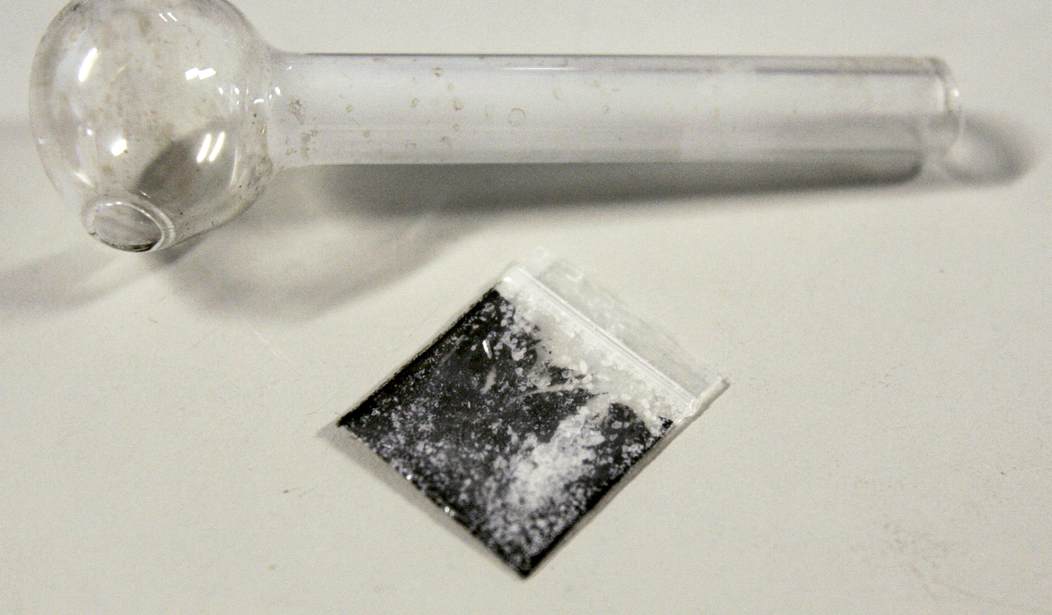Ahmed Binyamin Alasiri, formerly known as Kevin Lamar James, had a new lease on life. According to the Department of Justice, he had served sixteen years in prison for plotting jihad attacks against “U.S. military operations and Israeli and Jewish facilities in Southern California.” But now he was out, and it was time to turn his life around and make something of himself, right? Not quite: on Monday, Alasiri was sentenced to fifteen and a half years in prison for selling meth while he was on supervised release. A Florida man incident on the Left Coast? Maybe. Or maybe something much more sinister was going on.
The Justice Department noted that Alasiri “pleaded guilty in October 2021 to one count of distribution of methamphetamine.” This plea stemmed from the fact that “about one year after being released from prison and while serving a term of federal supervised release, Alasiri sold methamphetamine to a buyer on three occasions.”
Back when he was plotting jihad massacres in Southern California, Alasiri had a different method of raising money: “Alasiri’s co-conspirators committed numerous armed robberies of gas stations to raise money” for the attacks Alasari had planned on military Jewish facilities.
These co-conspirators were members of a group Alasiri founded in prison, Jamiyyat Ul-Islam Is-Saheeh, that is, The Organization of Authentic Islam. Alasiri took this moniker with the utmost seriousness, saying about one of his planned jihad massacres, “This incident is the first in a series of incidents to come in a plight to defend and propagate traditional Islam in its purity. We are not extremists, radicals, or terrorists. We are only servants of Allah.”
In line with this, according to the book The Spectacular Few: Prisoner Radicalization and the Evolving Terrorist Threat, one of the members of Jamiyat ul-Islam is-Saheeh explained that they were robbing gas stations as “part of a jihad against the U.S., particularly against American oil companies who are stealing from our countries,” that is, Muslim countries.
Were Alasiri’s meth sales also part of his jihad against the U.S.? It is a distinct possibility, as Islamic jihadists have used drugs to fund their efforts for years. Years ago, in his study of the Taliban, journalist Ahmed Rashid reported, “Abdul Rashid, the head of the Taliban’s anti-drugs control force in Kandahar, spelt out the nature of his unique job. He is authorized to impose a strict ban on the growing of hashish, ‘because it is consumed by Afghans and Muslims.’ But, Rashid tells me without a hint of sarcasm, ‘Opium is permissible because it is consumed by kafirs [unbelievers] in the West and not by Muslims or Afghans.’ This seems to have been a common view among the Taliban. Another Taliban named Khaled asked, ‘Who cares if heroin is wreaking havoc in the West? It doesn’t matter; they aren’t Muslims.’”
Related: Kentucky Fried Jihad
The Taliban weren’t alone. The Washington Post reported in August 2020 that in Italy’s port of Salerno, customs agents “recovered 84 million tablets of the amphetamine Captagon. It was a record haul, worth an estimated $1.1 billion, and even more jarring was the suspect initially named by police as the likely source: the Islamic State.” However, as the investigation continued, suspicion shifted to another jihad group, the Iranian client Hezbollah, which, according to the Post, “appears to be growing increasingly reliant on criminal enterprises, including drug smuggling, to finance its operations, U.S. and Middle Eastern analysts said. Law enforcement officials have linked Hezbollah to a string of major drug seizures, in locations ranging from the empty desert along the Syria-Jordan border to urban centers in Saudi Arabia and the United Arab Emirates, to central and southern Europe.” Nor did this activity appear to be limited to Europe only.
The Miami Herald reported in October 2016 that “three men suspected of laundering cocaine money for the Colombian cartel have been busted after agents say they illegally moved $500,000 into Miami banks through a series of complicated financial transactions stretching from Australia to Europe. That’s not uncommon in Miami, but the trio’s background is: They are suspected associates of the Middle Eastern terror group Hezbollah.” The case, said the Herald, highlighted an increasing law enforcement focus on “the role of Middle Eastern terror groups who use financial networks in Latin America to earn untold millions off drug profits.”
Were Ahmed Binyamin Alasiri’s meth sales financing his own jihad terror plans? The possibility cannot be ruled out, and U.S. authorities would do well to turn some of their attention away from Critical Race Theory and transgender studies for a moment or two in order to address this problem adequately.










Join the conversation as a VIP Member